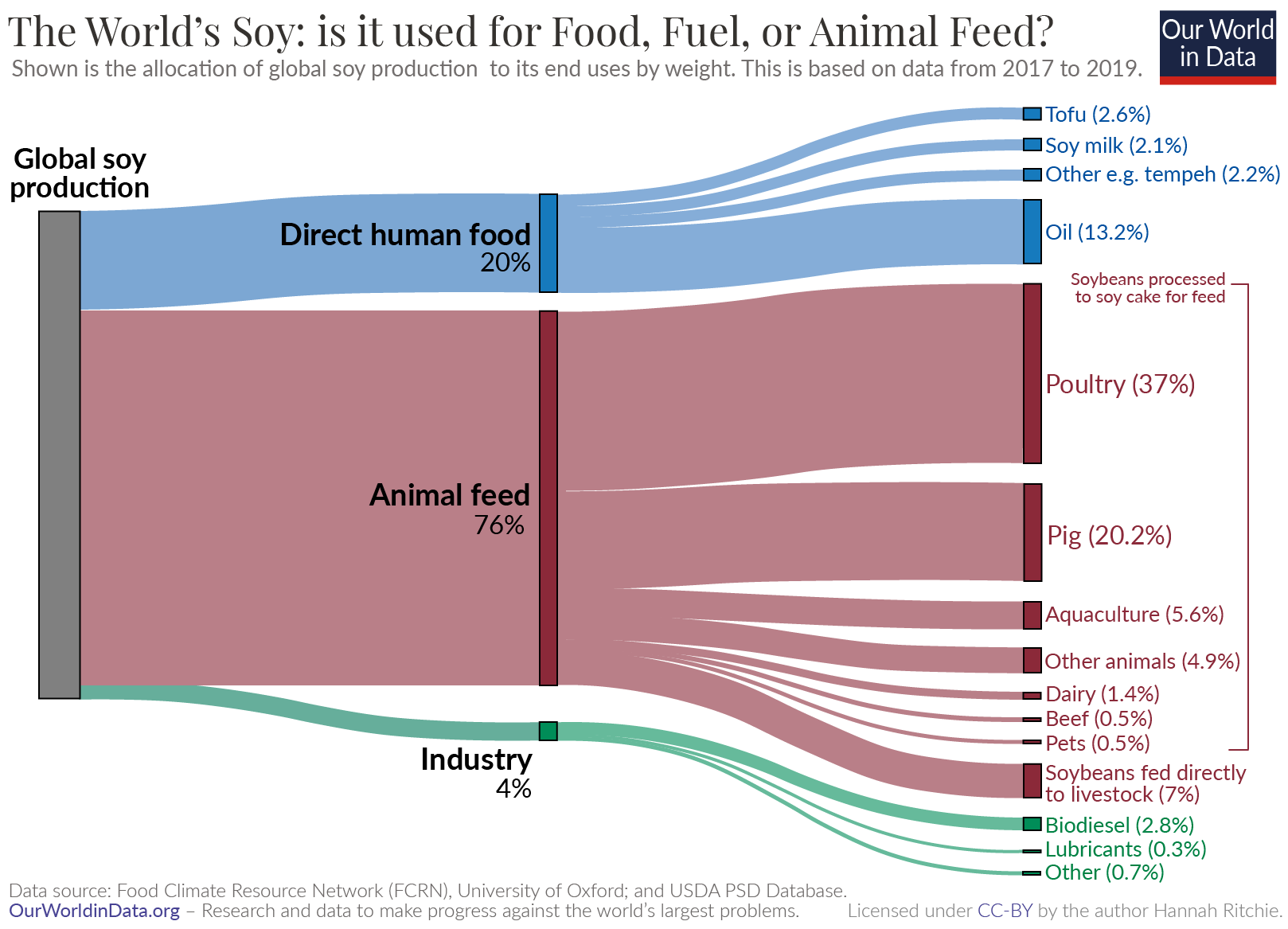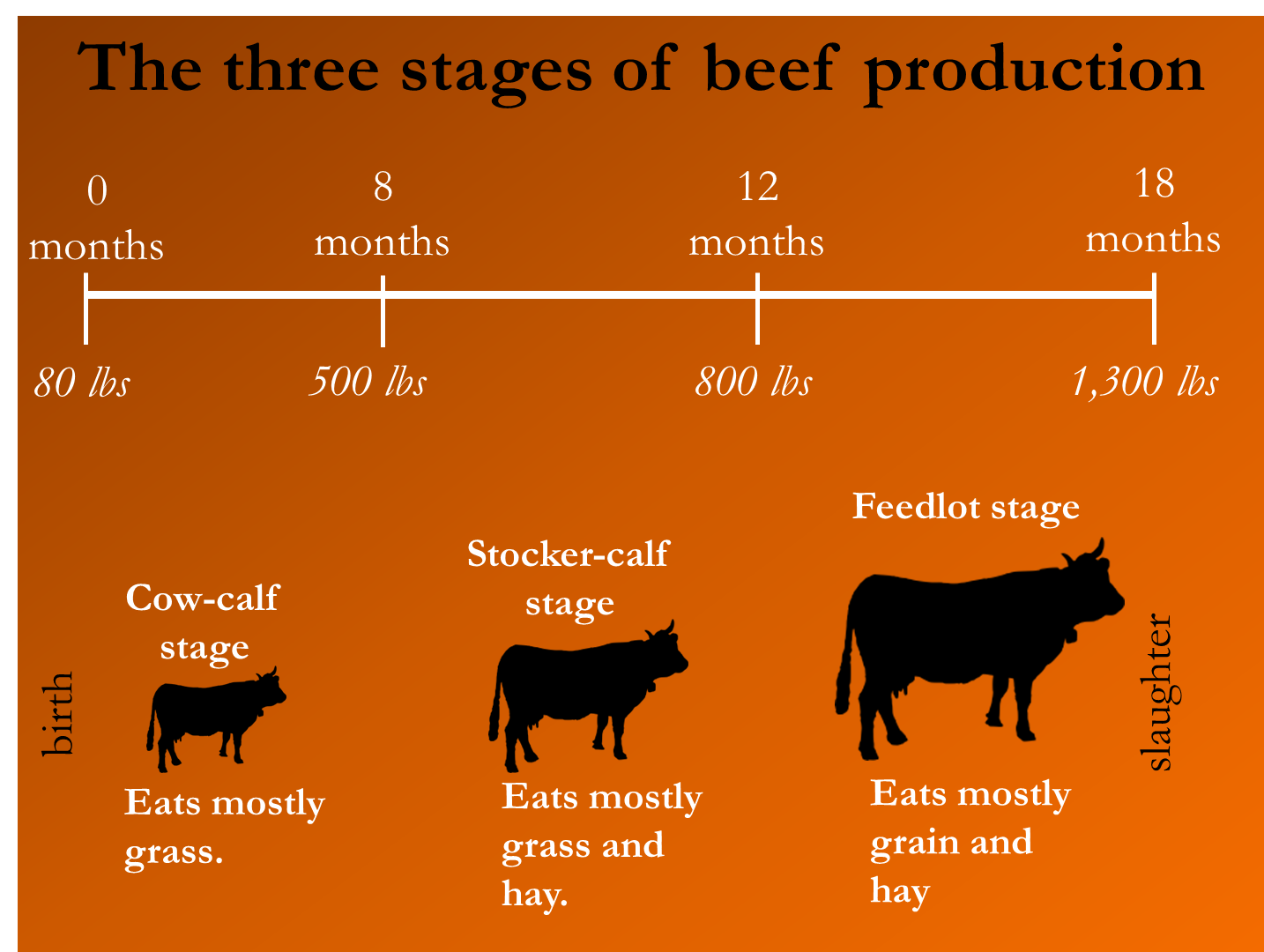People are used to seeing stark warnings on tobacco products alerting them about the potentially deadly risks to health. Now a study suggests similar labelling on food could help them make wiser choices about not just their health, but the health of the planet.
The research, by academics at Durham University, found that warning labels including a graphic image – similar to those warning of impotence, heart disease or lung cancer on cigarette packets – could reduce selections of meals containing meat by 7-10%.
It is a change that could have a material impact on the future of the planet. According to a recent YouGov poll, 72% of the UK population classify themselves as meat-eaters. But the Climate Change Committee (CCC), which advises the government on its net zero goals, has said the UK needs to slash its meat consumption by 20% by 2030, and 50% by 2050, in order to meet them.
“how can we shift responsibility to the consumer today?”
Eh, in all fairness the meat & dairy industry is one thing that we as consumers really do need to take a bulk of responsibility for. I say that as a devout meat eater.
BUT, governments could go a long way by not subsidising dairy and meat and instead subsidising protein alternatives. It’s fucking nuts to me that it costs more for me to buy plant protein.
(Before the die hard vegans come at me saying you don’t need to eat pseudo (plant) proteins to eat less meat, please remember you’re trying to convert people that are familiar and enjoy one diet to another. You’re not going to encourage anyone by advocating a cold-turkey or 0% meat approach. I hate that I have to put this disclaimer here, but I’m fed up with arguing with puritanical vegans that overshadow pragmatism.)
United States federal government spends $38 billion every year subsidizing the meat and dairy industries
Apparently people consume a lot more meat than they need and even than it’s healthy to consume (though it heavilly depends on the country and the eating habits of the population) so there is room for huge improvement in greenhouse gas emissions from the industry AND health-outcomes by campaigning to reduce meat consumption (rather than the absolutist and rather moralist idea that people should become vegetarians or even vegans).
Also I’m quite weary about any proposed solution involving moving some of the current meat consumption to processed and ultra-processed protein alternatives: we keep getting study after study associating processed and especially ultra-processed food to all kinds of health problems.
the meat & dairy industry is one thing that we as consumers really do need to take a bulk of responsibility for
No, the capitalists that put profit before the well being of the planet, the consumer, and their products are to blame and should be held responsible, not the people just trying to live their lives under a system imposed on us for the benefit of a small few (and before the die hard vegans come at me - I am a vegan, I just don’t think the problems we’re facing are because other people eat meat, but because capitalism has made meat in to an industry).
Capitalism doesn’t endlessly produce, it produces to meet demand. Sometimes the “demand” can consist of subsidies to the industry with the intention of lowering price to consumers, but with the consequence of potentially creating more waste. I’ve read about farmers dumping excess product out because subsidies “bought” too much product to fit on shelves (aka consumers didn’t buy enough to satisfy the greed for profit). Heaven forbid that excess product help people in need, for that may hurt the bottom line.
You honestly said it best in the first thing you said. …“capitalists that put profit before”… everything else. Pure capitalists, while mostly if not entirely evil, do not pollute for the fun of it. They pollute because of greed. If they aren’t profiting from polluting, they’ll (try to) find another way to profit. It’s all they know, a literal one track mind.
That is definitely not to say that their carelessness while chasing profit is okay. It’s harmful and evil. But it is largely just that, carelessness. A pure capitalist cares of nothing other than personal gain. And a public corporation in capitalist society must put shareholder profits ahead of all else by law. The only things they must adhere to in pursuit of profit are other laws, and even then only if the penalty for breaking the law hurts profits more than ignoring the law. This is by design, however terrible that design may be. Examples of this are everywhere. Children illegally hired in packing plants, illegal union busting, etc.
Perhaps the most brazen examples are car manufacturers doing cost-benefit analysis on whether to issue a recall on defective cars. Literally teams of experts calculating whether it will be cheaper to recall and fix dangerous defects, or pay out lawsuits when people get hurt/die. Spoiler: they can, have, and do choose to eat the cost of lawsuits when it is calculated to be cheaper than a recall. And yes, if you live in a capitalist society your life has a dollar amount attached to it (roughly $7.5 million as of 2020 according to FEMA). Your social security number may as well be a barcode placed on product.
Sorry, I got a little sidetracked. What I’m ultimately trying to get at is, we as consumers will have to take responsibility for consuming less because industry will do its’ best to meet demand as long as it is profitable to do so. I think switching subsidies to alternative, less polluting foods is a great solution because it (in theory) works on multiple fronts.
By not subsidizing the meat & dairy industry, industry will be forced to raise cost to consumers or lose money. A higher cost to consumers means consumers will be more open to alternative options. If the options that are better for the environment are then subsidized to lower cost to consumers they become an attractive option.
Example: If the average meat eating, non-eco minded consumer has the choice between paying $50 for a pound of real meat, or $50 for a pound of meat alternative that tastes identical, they’ll choose real meat nearly every time. Now give that same consumer an option of $10 for a pound of meat alternative (whether it tastes identical or not) and the mental math changes considerably. And honestly I doubt the price difference would have to be that drastic to have a noticeable impact on consumer buying habits. Especially when you take into account that people are trending towards being more eco aware.
I’m gonna end this here before I go on ranting all day. /Rant
Tldr; capitalism sucks. Subsidizing meat alternatives seems like a decent idea. Thank you for coming to my TED Talk. I hope you all have a wonderful day, and achieve all of your dreams. Please leave me alone :)
Capitalism doesn’t endlessly produce, it produces to meet demand.
industry creates its own demand
How so? Which industry produces without consumers involved? I’m honestly not trying to be condescending, if you can help me feel less bitter toward the world… I don’t even know what that would feel like anymore. I cannot express how grateful I would be.
I suppose it could be argued that an industry could (and I suppose maybe has) jumpstarted itself from nothing through clever/abusive advertising; the example that comes to mind is perhaps the diamond industry? I’m thinking of De Beers extensive marketing campaigns that implanted diamonds as the only ‘real’ choice to propose with. But it still takes consumers at the end of the chain for that/any industry to survive. Nobody holds guns to our heads forcing us to buy things. The only industry I can think of that is life or death and simultaneously our only feasible option of survival is the medical industry. But even then, barring external pressures, if people somehow stopped going to hospitals en masse the hospitals would shut down. If people stop buying manufactured medicine, they stop manufacturing medicine.
Just to clarify, I don’t think it’s right or “fair” for responsibility to fall on consumers. Ideally, elected officials would pass laws that make industries take responsibility for their actions. Even more ideally, greedy people wouldn’t be in positions of power. But greedy people will always seek positions of power in their lust for power, and altruistic people will naturally gravitate away from positions of power in their quest to help empower others.
Like I’ve said though, if you or anyone has any examples to help me change my way of thought I honestly truly welcome it with an open heart. But as far as I can tell, in capitalism the only way meaningful, helpful change happens is when the consumers (the masses) are educated, well informed, and think critically about the choices they make at the checkout. Supply and demand economics is well known, and essentially a solved equation for businesses at this point. If there is demand and profit to be had, someone will supply that demand come hell or high water. I (unfortunately) literally cannot see any other way at this point.
How so?
capitalist get it wrong all the time. here’s a good example: no one but iPhones in 2004. here’s another good example no one buys fidget spinners in 2023.
First, and I don’t mean to be pedantic, I’m sure you know this but just want to clarify, putting absolutes on things like saying no one buys something is almost always false. Very few people comparatively sure, but when it comes to capitalist greed these differences matter. Anyway…
Sure they’ll miss a fiscal year or two here and there. But in the case of iPhones, I can assure you that if Apple calculated that the iPhone was going to continue to not sell well and would hurt their profits to continue manufacturing, I probably wouldn’t be able to hit the button on a stopwatch fast enough to measure how quickly they would shut down manufacturing. Keep in mind that there are indirect costs/profits involved in many things. e.g. The value of user data gathered by phones is absolutely accounted for, goes into profit calculations, and is probably worth more to the right people than you’d think. Apple is one of the richest, most profitable companies in the world despite releasing what we would consider to be flops several times over the years. Apple released a video game console (the Pippin) in 1996 to compete with the OG PlayStation. They brought it to the US in '97 and pulled the plug the same year. The PlayStation released in '94 and sold well through the release of the PS2 in 2000 for comparison. A colossal flop from Apple that was nixed in merely a year.
A perfect example of the indirect profits that a product can accrue is when Google was initially getting into the tablet OS market some years back (around 2011 I think is when this specific “deal” was in place). They purposely sold the first Nexus tablet at cost/at a loss, paired with a “free” gift card for the Play store; on the condition that you had to add other payment info to your Play store account. A common tactic that other online vendors use because the statistics show that you are much more likely to spend money once you’ve already added and saved a payment method. Google didn’t require people to actually use the added payment info, and as far as I’m aware they didn’t even require you to keep the payment info saved for future purposes. They only required that you save your debit/credit card in order to use your “free” Play store credit. All because the biggest hurdle to getting people to spend online is/was getting them to give their debit/credit card info to the payment vendor. They correctly predicted that when offered store credit, consumers would not only give Google their payment card info, but also not bother deleting said payment info after they added the credit from the Play store gift card. Whatever the reasons may be, whether it be because you don’t trust a website, it’s more convenient to buy elsewhere, etc. and whatever the store may be, once you’ve added payment info you are statistically unlikely to subsequently remove that info and more likely to purchase there again in the future. Gotta love it… but alas even my bitter ass is not immune from these tactics.
As for fidget spinners, I suspect the sheer excess supply from people trying to cash in on the craze has basically cemented them as a permanent item on shelves. I remember reading stories of “normal” people that bought literal warehouses full of the things because during the height of the fidget frenzy the markup on them was insane. And then other people presumably bought up that excess supply for pennies on the dollar when the trend was dying. The capitalists that initially jumped on the profit train when spinners were trending were either successful and took their profits and left the bag holders, or were bag holders that accepted their losses by selling in bulk to someone willing to try selling them.
That went a bit longer than I intended… In short, even flops and niche items that don’t sell very well can still be profitable. I would advise against doubting the ability of greedy people/corporations to extract every possible fraction of a cent in their pursuit of profit.
we as consumers will have to take responsibility
wrong
If consumers don’t take responsibility, who will? I for one will not be holding my breath for the legal system to take nor force responsibility. And certainly won’t hold my breath waiting for capitalists to take responsibility. The only way I can see any current system to budge at all is at the behest of consumers, by force. I am not advocating violence, just simply stating that as far as I’m concerned, asking nicely for a capitalist to stop profiting, or even asking to not profit as much is a fallacy.
If you or anyone has convincing arguments saying otherwise I would really honestly love to hear them because frankly I don’t like feeling/thinking this way. It’s depressing and helpless feeling and I hate it. But it’s what I’ve seen and grown up with my entire life.
We live in a World were techniques from modern psychology are user freely in Marketing to influence people via subconscious means (have you noticed how perfumes adverts are usually about sex, car adverts about freedom and fizzy drinks adverts about “fun with friends”?)
And we all are susceptible to it, no mater how intelligent and well informed (even if only because familiarity with something makes us naturally favor it, and that applies to brands too).
(This is actually one of the ways used by the food industry to create demand beyond natural human need for food, by the way and picking up on another discussion of yours - it’s well worth it to read a book called “The Omnivore’s Dilemma” on this as well as “Freakonomics” for an intro into all the “fun” ways in which humans aren’t really rational as economic agents, including as consumers)
I don’t think we can rely on “consumers” to change things exactly because humans as consumers are to a very large extent manipulated and even those who have a very high awareness of their purchase and consumption habits are but a minority that doesn’t really has much impact in the big scheme of things.
I agree with you almost entirely. There are definitely deceptive advertising practices all over by every industry. And subliminal messaging is in use everywhere. Both are getting worse all the time as people trade privacy for convenience, myself included. A quick search will reveal many results of people talking about how they’ve talked about something for the first time that they have no interest in and being shown ads for it later. Advertising has reached the point where companies can tell when a woman is pregnant before she does and start advertising accordingly.
I also agree that for most of this, consumers are the virtually powerless underdogs. The only way to truly stop it, if there even is a way to stop something like subliminal advertising, is legislation.
All that said, I do think that consumers can do more than we are. In the current world it seems like waiting for politicians that are bought and paid for by these companies to pass legislation that these companies don’t want is the wrong course of action if the goal is to decrease consumption. Nations want you to consume because that makes the economy look better.
However, educating ourselves, and more importantly each other, on these deceptive advertising practices, and taking an active stance to consciously combat said practices can make an immediate impact while we wait/hope for meaningful legislation. If we’re watching a movie or TV show with friends and see some subtle product placement, call it out. When we’re at the store take a moment to consciously think about whether we need some product, and what the consequences of buying said product are. How much energy is used, what kind of waste does it make both during production and after consumption. If it’s recyclable, how? And how much energy is used in doing so? We should all demand to know what our local recycling policies are. Not just what they accept as “recyclable” but whether they actually recycle or just send it to a dump anyway. And wherever possible opt for options that are better for our world and better yet, going without when possible. I see a lot of “keeping up with the Joneses” in the modern world, and so much waste that seems reasonable avoidable.
I think I got a bit sidetracked. I definitely don’t think we as consumers can do everything, and I think pretty much the full responsibility should fall on corporations and those in power, but currently that’s largely not the case. And I don’t think we have time to wait for that to change.
Ultimately I definitely think we largely agree; maybe slight differences in the how, but the end goal seems the same. As far as I can tell we are allies. We can and should help each other and others to advocate for personal changes and policy/legislative changes to combat the rampant over-consumption and over-production in the world today. I don’t have children but I still want a livable Earth for future generations so so much.
I think direct action is much more effective than consumer activism. actually I don’t believe consumer activism is effective at all. do you own a pair of bolt cutters?
I think I agree with direct action being more effective. The question is at what cost? In modern society, at least in the US, theft and other direct actions are crimes seemingly punishable by death on sight. The sheer number of news articles involving thieves being shot, especially if they’re running, deeply saddens me. To me, non-violent crimes warrant non-violent solutions. But then to me it’s arguable whether stealing groceries should even be a crime. Desperation will drive people to a life of crime 9 times out of 10 and who can blame them if there are no other resources available? I honestly don’t know what the solution to any of this is if there even is a perfect or near perfect solution. I’m all for not letting perfection get in the way of progress (in theory at least. In practice I’m personally a bit of a neurotic perfectionist and it prevents me from getting anything done), but I hate loss of life. And unfortunately even peaceful protest seems to turn violent when a few people do something to “justify” the use of weapons banned in warfare (tear gas) and worse, deadly force. I recognize that this is likely the cost of progress, but it doesn’t mean I have to like it.
I do still have some vague hope in democracy, and wish more good-hearted people could be elected. But I also recognize that those that most deserve positions of power are the least likely to seek positions of power. Let alone what their chances would be to actually be granted said positions by those already in power. To be honest I feel the cards are heavily stacked against the people, and have been for some time. And all of the ways I can envision getting out of the situation, quite frankly, suck ass for one reason or another. But ultimately the answer will likely have to suck, will probably involve violence (which I hate), and will take some time. But it may be better in the long run I guess, but I don’t particularly want to be the one to pull the metaphorical trigger. And I definitely don’t want to be the one to pull the not-so-metaphorical trigger…
Direct action to make WHAT happen? Any sane direct action concerning animal rights or climate change would NECESSARILY reduce the amount of meat available and/or increase the price. In the end, there is no alternative to eating far less meat. And you’re delusional if you believe the very privileged western consumer base would accept those consequences.
That is exactly why consumers must realize their consumption habits are unsustainable, and unethical.
The thing is, you don’t have to eat as much meat. If people cut their meat intake by 25%, we would cut GHG emissions from the food industry by 25%.
If people cut their meat intake by 25%, we would cut GHG emissions from the food industry
i doubt it. but do you have a plan to get there?
No, we don’t.
Good point, you’ve convinced me.
meat & dairy industry is one thing that we as consumers really do need to take a bulk of responsibility for.
wrong.
Nice, well-supported argument.
i presented exactly as much evidence as they did.
Do you need evidence to support the popular theory that no one has a gun to your head at the grocery store saying “buy that ground beef”?
whether i buy beef or not does not change whether the industry continues.
If no one buys beef, there would be no beef industry, they don’t produce stuff for fun.
deleted by creator
which one?
Business execs are cloaked reapers. It’s pretty interesting that these people continue to reproduce though, while still fully railing against any chance at a decent world to live in. I guess I’m not surprised they wouldn’t care or have the foresight to worry about even their own blood’s future - it’s exactly what led us here.
Some upstanding citizen with a terminal illness should use the opportunity to make an example out of these worthless parasites.
Whose responsibility is it what to consume, if not the consumer’s?
consumption doesn’t emit greenhous gasses: production does. who is responsible for production?
What method of producing meat that doesn’t emit greenhouse gases do you propose?
“Consumption doesn’t emit greenhouse gases, production does”, that doesn’t really make sense. If no one consumed meat one year, much less meat would be produced the next year, leading to less greenhouse gases.
it seems like you understand that all the emissions are in the production but you’re incredulous and proposing and impossible hypothetical to support your position.
Removed by mod
Please focus on curbing your own satisfaction, so the oil industry can continue to be the biggest polluter AND make money hand over fist.
The Guardian is very much a neoliberal newspaper (some people confuse it with being Leftwing because, like most neolibs, they’re also liberal on moral subjects) so it is usually against regulatory solutions and heavilly favours using Nudge Theory to influence the masses.
So yeah, you’ll see a lot of articles about how people should become Vegetarian because of the emissions from livestock farming and very few demanding, for example, regulation of aircraft emissions (though there is a single Opinion writter there which does not suffer from profitability-prioritizing-thinking when it comes to ecological subjects).
The oil industry is, of course, doing all that polluting for the sheer fun of it. Our collective consumption habits, esp. in the PRIVILEGED western countries, have absolutely nothing to do with it.
There is no sustainable way to eat the amount of meat we do, no matter how much or how little capitalism gets involved. Even assuming the absolute best (aka unrealistic) stats for grass-fed cows, we’d still have to reduce our meat consumption to 1/7 of where it currently is. Do you think that is doable just by destroying some companies? Do you think people would just accept that???
Ban lobbying and see how fast the whole justification falls apart. There’s a reason why west is so car dependent and there’s no public transport in sight.
Since around 2018 we have known that agriculture, specifically the raising of cattle, spews out more harmful emissions than the oil industry does.
No, it does not:
😂 mind adding a source for that?
“My source is I made it the fuck up!”
The voices in my head
deleted by creator
Any study that also includes indirect greenhouse gas emissions such as methane, and not just CO2.
Methane is greehhouse gas which is included in the original link. But even if you ignore that section, there’s literally methane only section.
The same methane that can be greatly cut down just by changing the diet of the cows? That methane?
Except they don’t. They keep pumping out agricultural funded studies that say “a crumb of seaweed solves climate change!” but we’re always soon™.
Lol they never make the janitor sign an NDA. It works, figuring out how to lock down the patent is what’s keeping it from market.
Greed, just greed.
There are NO emissions from cattle at all! Cattle eat grass, then fart, then “emissions” precipitate and new grass grows up. It’s a closed loop. And since it’s a closed loop, there are zero emissions. Emissions only happen when you dig up oil, burn it and it and your smoke doesn’t get converted back to oil.
Thanks for giving me the dumbest shit I’ve heard today.
Lolwut?
It doesn’t.
Why not both?
lol but not on gas? Plastic?
Waste of money and time.
Not really. The meat industry makes INSANE amounts of GHG emissions. Whataboutism surely won’t solve climate change.
Calling something whataboutism won’t either. That’s just lazy and dismissive.
The CONSUMER is not going to make a difference. The change needs to happen on an industry scale.
Cattle don’t produce any emissions.
How so? Cow farts? The grass is going to emit the same gasses whether it decomposes in a cow stomach or in the dirt. I guess the solution to carbon emissions is to pave the earth! No more organics polluting everything.
Not necessarily cow farts, but manure, fertilizer, and landscaping.
Methane comes primarily from livestock digestion (known as enteric fermentation) and the way livestock manure is managed. It contributes the most to agricultural emissions of greenhouse gases.
The second largest contributor is nitrous oxide, which results mostly from agricultural fertilizer application to soils and from manure management.
Carbon dioxide emissions come from increased decomposition of plant matter in soils and from converting lands to agricultural uses. Those emissions are partially offset by the increased plant matter stored in cropland soils.
You’re not wrong about the same gasses being created by decomposing grass and digested grass, but like most things, it’s a multifaceted issue.
As they say, you can’t get snakes from chicken eggs.
Good answer
Probably one of the best rebuttals I’ve ever read.
Truth be told the nugget about the same gasses being released from digestion and decomposition was news to me, so thank you for that. My knee-jerk reaction was to refute it but I realized that I truly didn’t know for sure. So I checked, lo and behold, I was wrong, and now I’ve learned something today.
Here is an alternative Piped link(s):
you can’t get snakes from chicken eggs.
Piped is a privacy-respecting open-source alternative frontend to YouTube.
I’m open-source; check me out at GitHub.
Most cows eat soy which is produced on former rainforest grounds.
Additionally, we are better off eating/using what is produced on farmlands directly instead of feeding it to animals. That is much more energy efficient!
we are better off eating/using what is produced on farmlands directly
we do. what we feed to animals is mostly the parts of plants that people can’t or won’t eat.
That’s just not true lmao. 90% of soy production is for animals. Not humans.
lmao
85% of all soy is put into an oil press. the byproduct of oil production is called soycake or soy meal.

that makes up the vast majority of the soy that is fed to animals.
So… What i said? Lmao what trap card. Your source doesn’t say anything about “soy humans can’t eat”. It’s just normal ass soy pushed into soy cakes.
you’ve activated my trap card
soy is my favorite example
No cows in UK eat soy.
Also idk about you, but I can’t eat grass
cattle hardly eat any soy at all

Most importantly cement. Believe it or not it’s a huge chunk of pollution and requires a lot of energy to produce. Even funnier is the fact we do have eco-friendly cements but they are not being used because they are a bit more expensive and no demand.
Absolutely. Lots of places have building codes, this should be one of them. When the demand goes up, the price goes down. Don’t even get me started on car tires.
This seems like rather an optimistic headline, seeing as the article also says that the results from the study were “not statistically signifiant”.
Considering how meat is in most things, you’d think that it would just oversaturate people with warnings, and they would just end up ignoring it. Similar to how people more or less ignore California’s Proposition 65 in the USA, because it’s so broad, and the thresholds are so low that basically everything has a label saying “This product contains chemicals known to the State of California to cause cancer”. Anything significant gets lost in the noise.
Why dont we do this also every time someone buys a car?
Every car is the same shape and only comes in one shade of brown. They are required to have large, graphic advertisements across the sides warning about the environmental impact.
I actually think that would be very effective. It would also make every city very depressing to live in. However, we could mitigate that by populating the streets with colorful plants and art.
From a health perspective, absolutely.
From a climate perspective? Just tax carbon and give the proceeds back as UBI.
To the extent that health warnings work, it’s because it affects the consumer directly. A climate warning is saying “this burger is going to make life slightly worse for someone halfway around the world.”
It may change consumption slightly but also risks a blowback of denial. People don’t like feeling guilty and are perfectly capable of sticking their head in the sand so they can enjoy a steak.
Ughhhh UBI is flawed because it makes government spending astronomical even with a carbon tax. A Means Tested Basic Income works better than UBI because it prioritizes those who need help the most (e.g. those who are impoverished rather than everyone). I’m not an econ expert but the topic from the National Speech and Debate Association is on fiscal redistribution so I’ve been studying it a bit. I feel really pretentious saying this but UBI doesn’t work as well as Means Testing does.
I think this is a case where worse is better. For the sake of argument I am willing to assume that means-tested basic income creates better outcomes than UBI, but UBI sidesteps things like perverse incentives (“I can’t afford to work because I’ll lose benefits”), administrative overhead, and incentivizes support because it’s basically bribing everyone.
Means-tested will be fought because “why should my carbon tax pay for lazy/those people to not work?” UBI is about compensating everyone for the harm that is being done to the climate.
deleted by creator
Carbon tax credits are not a carbon tax. Carbon tax is adding a tax to pollution. Gas for cars, methane (“natural gas” ugh) for homes, coal for power plants, etc. all get taxed. Keep raising the tax until we hit neutrality.
It’s a market-based solution so the right wingers will love it, just like they loved Obamacare. /s
But you can breath warning labels?
If we make them out of little bits of plastic, the answer is shockingly yes
Yeah it’s going to stop people from eating what ever shit that’s available for the cheapest price to continue living. I’m pretty sure this is just another bullshit study to talk about how people should eat healthy while they don’t have budget or means to…
Edit: It seems many of you missed the meaning of what I’m talking about! Poor people who eat fast food, chicken or whatever processed meat products available for cheap not going to give a fuck about what their meat is labeled. Meat just doesn’t mean the steak people buy from the market! If this is so hard for you imbeciles to understand without getting triggered because someone said something you don’t understand than there is no need for further discussion. Processed meat consumption (including all kinds of meat beef, lamb, pork, chicken even fish) is the cheapest protein source for poor people. This study is disregarding how poor people do their food shopping. Until so called I can’t believe it’s meat type of vegetarian alternatives come to the point of real meat poor people going to continue to eat meat. And all you butt hurt so called activist can’t even see the difference because you have your head up so high up your high horses to realize what the fuck is normal people going through. Now kindly please go fuck yourselves and don’t comment any more unless you have an actual and feasible solution.
have you seen the prices of beans and rice?? i save a lotta money by not eating meat. even with the outrageous subsidies poured into meat it can still hardly compare.
deleted by creator
It’s weird hearing my dad and sister complain about how expensive meat is. Today i shopped pretty cheap, although i didn’t have to buy meat.
And i just sit there and think: oh man if only there was any alternative.meat simply has better protein options
what kinda high protein low fat and carb options are there for veggie folk?
id like to substitute chicken breast occasionally. i looked into tofu but its super fatty for pretty mid protein. beans high carb mid protein. lowfat plain greek yogurt and cottage cheese are NICE protein but taste like literal dogshit though its so close to being worth trying to stomach.
im on the search for more macro friendly foods that don’t taste like sour liquid chalk
Meat is cheap because of govt subsidies. And lab grown meat will soon be able to undercut slaughtered meat in price without those subsidies, so the whole “let poor people eat what they can afford” argument will switch sides in the coming years without new protectionist governmental policies.
How soon? Last I heard, they had insurmountable scaling issues.
Problems are always insurmountable until they aren’t. Scaling is one of the last challenges businesses face when bringing new products to market. I don’t have any inside information, but investment is still trending up and companies aren’t throwing in the towel, so they still think they will be able to solve it. Once they do, the industry will change incredibly fast, especially with a market estimated at close to $100b per year.
I’m watching with great interest.
When. Fullofshit.
Meat is not “cheap” it’s god dam expensive.
No one said meat is “cheap.” The word was used as a relative comparison, meaning slaughtered meat is cheaper than lab-grown alternatives.
Keep telling yourself that.
Meat is cheap
Wow you are dense
Meat is cheap
deleted by creator
Sure there’s people that just buy what’s cheaper. But there’s also people who consciously make the choice of eating meat having the possibility of not doing so. It makes sense to target that part of the population.
Now, if subsidies to the meat and dairy industry was redericted to plant-based farming, then the only reason left to consume animals would be people’s choice of personal pleasure over ethical and environmental factors
Meat is cheap now huh?
is that what you managed to understand what I’m saying here? If so please go away and waste oxygen somewhere else.
deleted by creator
No it won’t
Ha! Love it! Do it! Not like there is any lack of studies to show the health dangers of meat.
- Conclusion: Red and processed meat intakes were associated with modest increases in total mortality, cancer mortality, and cardiovascular disease mortality.
- The study found that people who ate two servings per week of red meat or processed meat had a 3% to 7% higher risk (respectively) of cardiovascular disease, including heart attack and stroke, and a 3% higher risk of death from all causes.
- observed strong correlations of dietary HCA intake and consumption of fried and processed meat with DNA adduct levels in breast tissue of 44 women
Won’t ever happen in the US tho. The meat industry is so protective that a lot of states have food libel laws, as well as gag laws that’s limit filming of slaughter houses. If something is so obviously safe, weird how you can’t talk about it’s risks or show its production.
We can’t forget how wasteful meat is as a food supply. Which is sorta obvious when you think about it for 5 seconds. Feeding cows edible food, drinkable water, on farmable land for several years to only get a handful of meals out of them is just silly inefficient.
And that’s just the data, not even going in to ethics. Which, come on. Cut a cow, they bleed, yell and flee. If you cut their young, they attack. Just like we do. Does it matter if they can’t talk? The question is, can they suffer? (yes)
I’m not going to argue with your sentiment, but your above arguments are either weak or factually wrong. This doesn’t help your cause.
A less then 10% increase in health risks is really a deciding factor, particularly against a cultural and dietary staple to many.
As for beef production, time to slaughter is often between 6 to 8 months, and not years.
Feeding cows edible food, drinkable water, on farmable land
most cows eat mostly grass. the bulk of the water they get is the water in the grass.
I would love to know where you’re finding all that delicious grass fed beef, because here in America it’s almost all corn-fed.
Industrial beef production in the US is crazy and has tons of problems, not just the feeding of the cattle with something it would not normally eat (and which is actually not good for their digestive system) with the associated preventive use of antibiotics and such.
In the rest of the World were Corn Farming is nowhere near the powerful lobby as in the US (you know, the kind of country were they didn’t put massive duty taxes on the much cheaper cane sugar in order to make High-Frutose Corn Syrup competitive) and regulations on the agro industry are lot tighter, those problems are a lot less.
This not to say your point is not right, more to say that whilst your viewpoint definitelly applies to a large fraction of the industry worldwide, so does the point of the person you replied to.
your beef isn’t corn-fed. it’s grass-fed, grain-finished. they don’t label it grass fed unless it’s NOT grain-finished.
But “finishing” is most of the weight gain of the animal and all the flavor.
It’s like arguing all cows are milk-fed because they were calves once.
It’s like arguing all cows are milk-fed because they were calves once.
i’m not arguing all cows fit the definition of “grass fed”. i’m saying most cows mostly eat grass.
But “finishing” is most of the weight gain of the animal and all the flavor.
no, it’s not. its about 4-6 months of an 18-20 month lifespan. most of their growing is done when they get to the feed lot.
edit:

The US is highly unusual in just how much Corn dominates food production and that most definitelly impacts the beef production which does included the feeding of corn to cattle (it’s actually what creates the “marbling” in american beef) which would otherwise not be done because it’s actually bad for the digestive system of cattle (there’s a book called “The Omnivore’s Dilema” that’s well worth reading) and is linked to other problems like the preventive use of antibiotics with cattle because the animals are more susceptive to disease (which in turn affect humans because it leads to increased antibiotic resistance in bacteria).
However in countries were Corn is not so insanelly dominant, the cattle is actually grown the proper way, so mainly grass fed as per your illustration.
Both you and the other poster are correct, IMHO, it’s just that each is talking about a very different locally dominant version of the beef production industry than the other.
each is talking about a very different locally dominant version of the beef
no, we’re both talking about american beef.
I wonder who is your target audience for posts like this. People who made the choice to eat meat on the basis of rational deliberation but are missing some key facts?
Pretty much everyone hopefully knows that meat is not great for the environment, is more wasteful to produce simply due to thermodynamics, that red meat is not very healthy, and that the ethics of eating meat are pretty clear cut.
We just don’t care cause it’s tasty as fuck. No amount of facts and sound ethical arguments will make a steak not taste amazing.
edit: for what it’s worth, I don’t care if they put warnings on meat. Doesn’t make it any less tasty.
No amount of facts and sound ethical arguments will make a steak not taste amazing.
You love to see it folks. Full support for your selfish, sadistic, nihilism in the face of science, empathy or reason. Long as you are enjoying yourself then who cares about the details?
Just gotta hope no one with more power, influence or capitol feels simmiliar when it’s time to consider others. Might be a rough world if everyone says “fuck it, lol idc”.
I take selfish and nihilistic but not sadistic. I don’t enjoy the fact that animals suffer for my enjoyment. It just doesn’t bother me all that much. It’s just part of life.
I wonder who is your target audience for posts like this.
Their own righteous self-aggrandizing ego.
Yep. 100% this. I’m not going plant based. I’m well aware meat isn’t great for the environment, but my single personal choice won’t make any difference to the industry, and will only result in me hating the little food I eat even more.
Plant based in general is textures that are so repulsive to eat that I’d rather starve.
That’s cool and all but I’m gonna keep eating meat lol
Are you a bot?
lmao
No. Just a vegan who has been around awhile and keeps a cheat sheet of sources. Poke around in my history, I talk to lots of people about lots of things.
This is a salty comments section. Can’t even tell who’s salty or why, but they definitely are.
You should salt, generally season, your board, not the steak. Unless you actually brine/marinate the thing.
Ah, so that’s why this message board is so salty
The cigarette warnings don’t do anything though. The shock images were scary to me as a child but by the time I was 18 I was so used to it that it was like I couldn’t see them anymore.
I was thinking this. There was an accompanying cultural shift in general. The labels weren’t telling them anything they didn’t already know. In the case of smoking, the data was unambiguous and directly impactful.
With meat, I’d suspect most of the target audience would roll their eyes and buy anyway. Especially since the labels would be on almost every package, and that asks folks to decide that every single food they’ve eaten their entire lives is a dire existential threat to humanity. That’s asking a lot of folks. While it’s occasionally tossed about in the media about meat having climate impact, it is nowhere near as ubiquitous as the smoking is bad. Besides, folks have been told again and again that fossil fuels are “the” problem, and that sounds nicer and easier and thus for most people there is an inclination to decide that is sufficient.
Thankfully due to the stagflation I’m doing some austerity efforts regarding my grocery procurement. This has resulted in my diet having consisted of the majority of vegetables with some eggs here and there.
Weird, vegetables are more expensive than meat.
You must have been getting ripped off.
Who says I’m living in US?
YOU WILL EAT THE BUGS
…or plants.
No
I ate fried grasshoppers once and it was seriously good. The buggers tasted like shrimps.
🫘🫛
I hate this idea. My appetite can be ruined by stuff like this, and that would suck to throw away food since I can’t eat it
deleted by creator






















